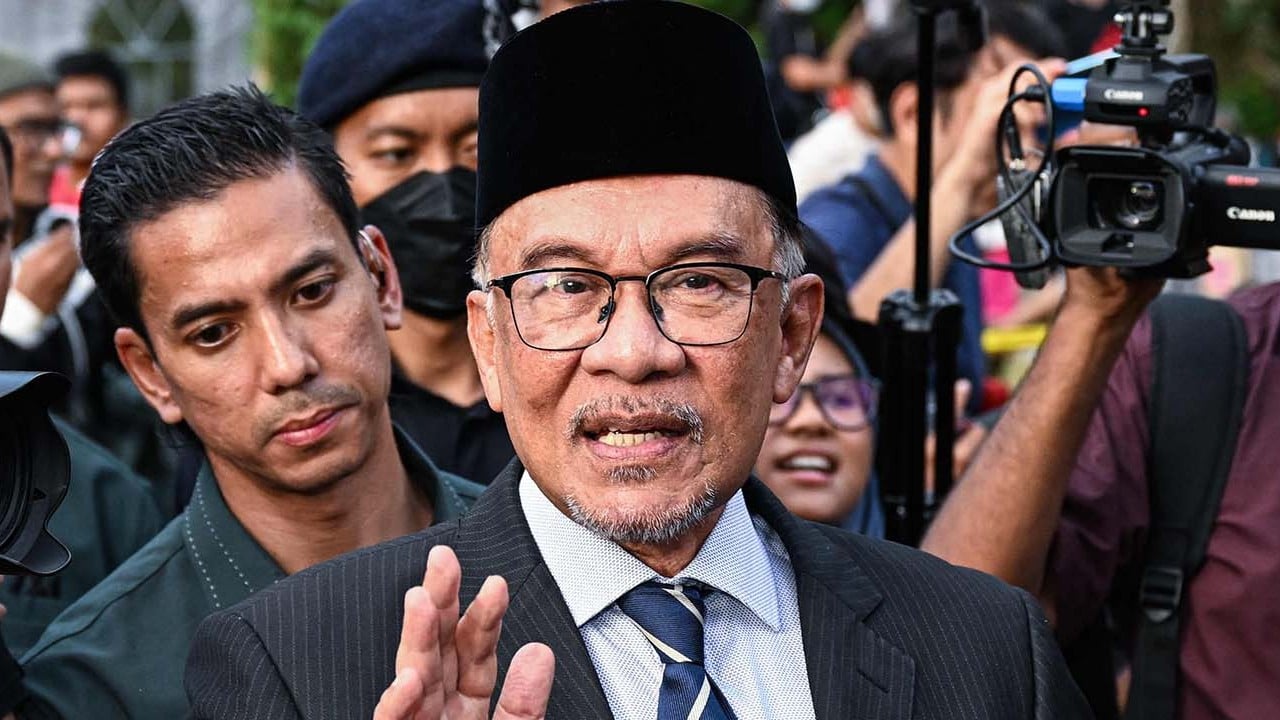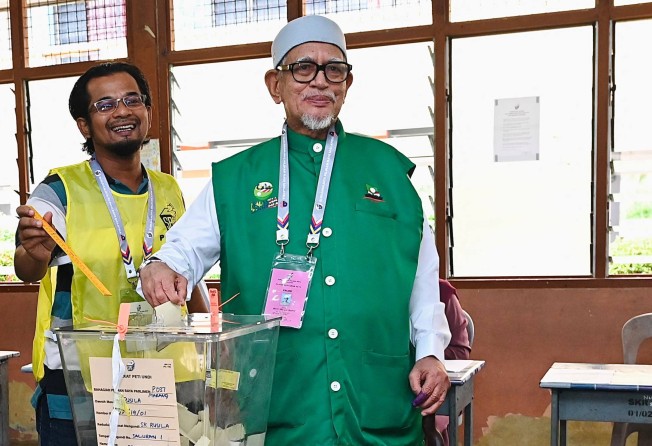
02:59
From prison to Malaysia’s new leader: Anwar Ibrahim appointed to top seat

The leader of Malaysia’s once-powerful United Malays National Organisation (Umno) has offered a sober assessment of the party’s past political machinations as it attempts to shed its firebrand image and claw back to relevance.
Ahmad Zahid Hamidi recounted the challenges Umno faced in the aftermath of its first-ever loss in a national election in 2018, and subsequent efforts to restore the group’s political power by aligning with Islamist party PAS to unite the nation’s “ummah” or Muslim faithful.
“At the time we moved towards uniting the ummah, there were views that this was a dangerous political movement. It was said to create an unhealthy and unbalanced political situation,” Ahmad Zahid told delegates at Umno’s general assembly on Friday.
“This was because we are a plural nation, with various races and religions. We cannot form a far-right political movement.”
The Umno president’s reconciliatory tone was a far cry from the usual rabble-rousing rhetoric that punctuated the nationalist party’s annual meetings even as recently as last year, when leaders and members would expound on the rights and privileges of the majority ethnic Malay community over that of minority groups in the country.
Ahmad Zahid used the gathering to tout unity and emphasised the need to first foster political stability in Malaysia before the party can hope to start reviving its electoral fortunes.
For six decades, Umno and the Barisan Nasional (BN) coalition that it leads were a dominant political force that appeared unbeatable until their shock defeat in the 2018 polls on the back of public anger over rising living costs and allegations of rampant corruption under disgraced former premier and Umno president Najib Razak, who is now in jail.
In last year’s general election Umno took a further beating, securing just 30 of the 222 parliamentary seats after losing significant ground in its traditional Malay base to a “green wave” – referring to PAS’ party colours. The drubbing also saw the nationalist party’s support shift to the hardline Islamist outfit and their partners Bersatu, an Umno offshoot.
The battered Umno still managed a return to government after throwing its support behind opposition icon Anwar Ibrahim as prime minister under a unity government mooted by the king.
While Ahmad Zahid’s policy speech signalled the party’s attempt to bring it towards the centre after years of right-wing posturing, experts are sceptical about his rebranding efforts.
Analysts said that it would be early to conclude that Umno is leaving behind the spectre of Malay nationalism for a more pluralistic agenda, especially since it remains focused on rebuilding its clout among the majority Malays.
“While the issues of centrism are important, they were framed as part of the political decision on who to ally with and without concrete measures to achieve them beyond the alliance,” said Bridget Welsh, an honorary research associate at the University of Nottingham Asia Research Institute Malaysia.
Umno’s Malay nationalist tendencies are currently being kept in check by Ahmad Zahid’s tenuous hold on the party, which has so far gone along with his decision to back Anwar especially after the prime minister named him as one of his two deputies.
Shazwan Mustafa Kamal, an associate director with corporate advisory firm Vriens & Partners, said Ahmad Zahid had made it clear to delegates that they held far more leverage as a key party representing Malay interests in partnership with Anwar’s Pakatan Harapan (PH) coalition.
Shazwan added Umno could end up a minor player in the hustle for Malay votes by allying with PAS and Bersatu.
“Ultimately this strategic calculation will have an impact, which is likely to be fleshed out during the coming state elections,” he said.
Six Malaysian states are expected to go to the polls this year.

Umno also faces a party election that must be held by mid-May and a change in leadership may again send Malaysia’s politics into a tailspin.
The impending state polls could shake Malaysia’s relatively calm political landscape as they will be held in northern regions where PAS made a near clean sweep of parliamentary seats in last November’s contest.
“Zahid is secure as he has a strong grip over most Umno’s division heads as well as access to a large war chest,” said Hafidzi Razali, an associate director with political risk consultancy BowerGroupAsia.
Hafidzi, however, added that the “momentum of anti-Zahid sentiment may build up if Umno loses badly in coming state elections.”